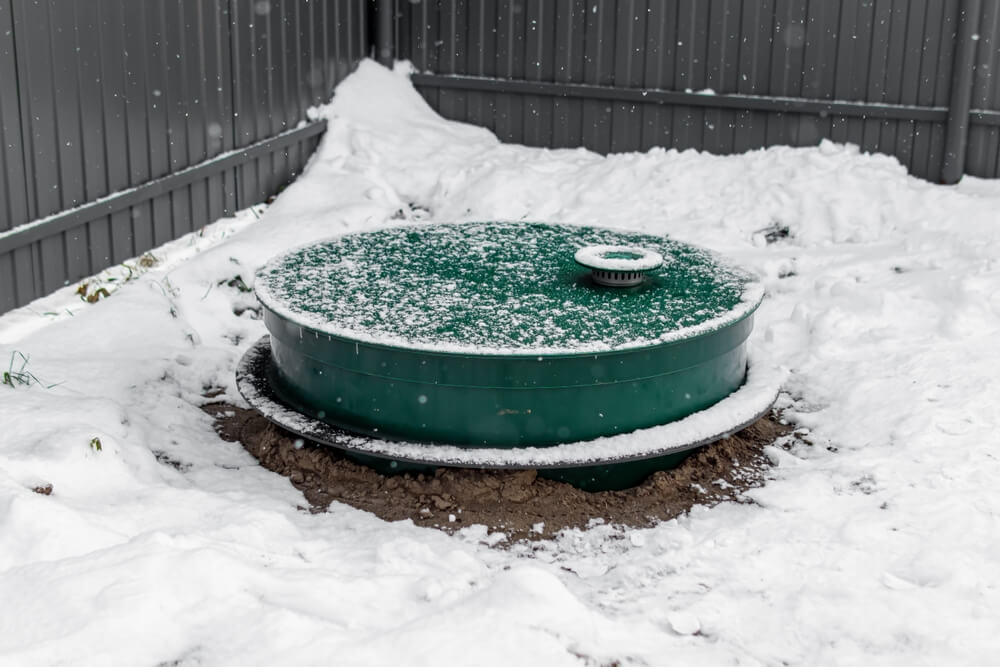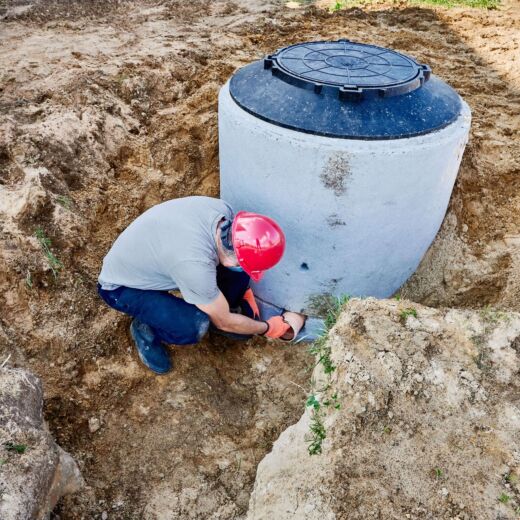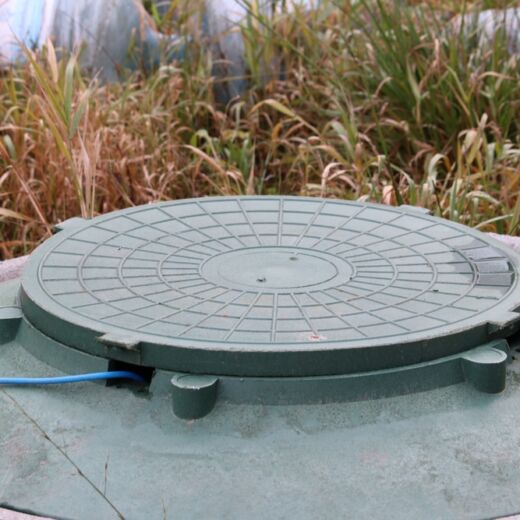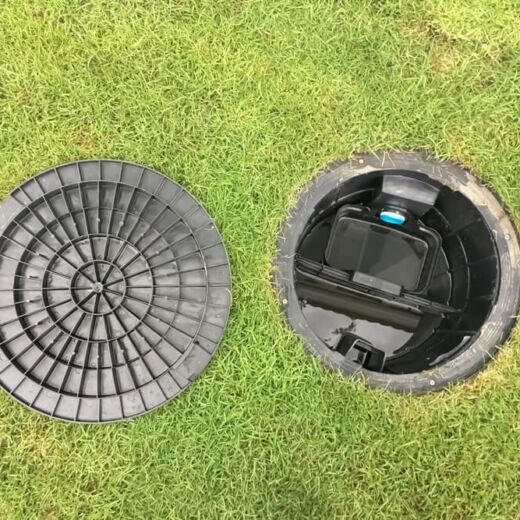The last thing you want is to deal with a septic issue in the middle of a freezing night, especially when temperatures plummet and the snow piles up. A malfunctioning septic system during winter can quickly escalate from an inconvenience to a full-blown emergency septic tank repair, disrupting your home and risking further damage to the system.
Despite these challenges, winter septic system repair is not only possible but often necessary to prevent bigger problems. Here’s what you need to know about maintaining and repairing your septic system throughout the colder months.
Common Winter Septic System Issues
Winter weather conditions not only make septic system repair more challenging but can also create or worsen problems within the system. Some of the most common issues homeowners face during the colder months include:
- Frozen Pipes or Tanks – Subzero temperatures can freeze water inside pipes or septic tanks, particularly if they are not properly insulated or used infrequently. Frozen pipes restrict the flow of wastewater, leading to slow drainage or backups in your home. In extreme cases, frozen pipes can crack or burst, resulting in significant damage.
- Soil Compaction – Heavy snow, ice, and foot or vehicle traffic over the septic drain field can compact the soil. This reduces its ability to filter and process wastewater. This compaction can cause water to pool on the surface, potentially leading to drainage problems or system overflows.
- Overworked Systems – The holiday season often means hosting family and friends, and the cold winter months following see more families staying home. This can increase water usage and, some guests may not be aware that certain items should not be flushed or drained. Your septic system may struggle to handle this sudden surge, leading to clogs, backups, or overflows. These issues are more pronounced in winter, as the frozen ground can make it harder for wastewater to disperse properly.
- Ice on Access Points – Access to the septic tank or drain field can be obstructed by snow and ice, making inspections and repairs more time-consuming. Professionals may need to clear these areas before any work can begin.
Why Winter Septic System and Septic Tank Repairs are Possible
While these problems may sound daunting, our experienced septic system professionals are equipped to handle repairs in winter conditions. While the process may require additional planning and equipment, both minor and major septic system repairs can be done.
If you’re having issues with your septic system in the winter, it’s important to address them promptly. A winter septic system repair can help:
- Prevent Costly Damage – Delaying repairs during winter can allow minor issues, like a slow drain or a small crack in the tank, to worsen over time. Frozen ground and fluctuating temperatures can make these problems worse and turn into a more expensive and invasive repair. Acting now can save you thousands of dollars and prevent major disruptions to your household.
- Avoid Health Risks – A malfunctioning septic system doesn’t just pose an inconvenience – it can create serious health and environmental standards. If left unrepaired, a compromised system can contaminate local water sources with harmful bacteria and chemicals, affecting your family and community. A timely septic system repair helps protect your family’s health and environment.
- Prepare for Spring – As winter transitions into spring, melting snow and heavy rain can stress your septic system more. Without proper repairs, minor issues may become major problems when wastewater levels rise during the thaw. Cracks, blockages, or soil compacted that seemed manageable in winter may turn into a system failure come springtime.
Tips for Maintaining Your Septic System in the Winter
To minimize the risk of winter septic system problems:
- Insulate your system – Consider insulating key components, such as the area above your septic tank and pipe with mulch, straw, or insulating blankets. This added layer helps retain heat in the system and prevents freezing, especially in areas where snow cover is minimal.
- Spread Out Water Usage – As you settle in for the winter, avoid overloading your septic system by staggering high-water usage activities like showers, laundry, and dishwashing.
- Inform Your Guests – Others using your septic system may not know what can and cannot be flushed or drained. Provide a friendly reminder for your guests about septic-safe practices, such as:
-
- Don’t flush wipes, sanitary products, paper towels, or anything other than toilet paper.
- Avoid draining grease, oil, or food scraps down the sink, as they can clog pipes.
- Prepare Your System if Travelling – If you plan to be away for the holidays, take precautions to protect your septic system in your absence. You can reduce the risk of frozen pipes and an emergency septic system repair when you get back from vacation by:
-
- Setting your thermostat to a consistent temperature to prevent freezing.
- Running a small amount of water through faucets before leaving to keep pipes from freezing.
- Ask a friend or family member to check on your property periodically and run water through multiple fixtures and toilets to add fresh warmer water back into the system.
Don’t Delay a Winter Septic System Repair
Addressing issues now ensures your system stays functional and prevents bigger, more costly problems in the spring. Professional winter septic system repairs require specialized tools and expertise that can handle frozen ground and implement effective solutions. If you’re experiencing septic problems, don’t wait – book a septic system repair today to get your system back on track.




